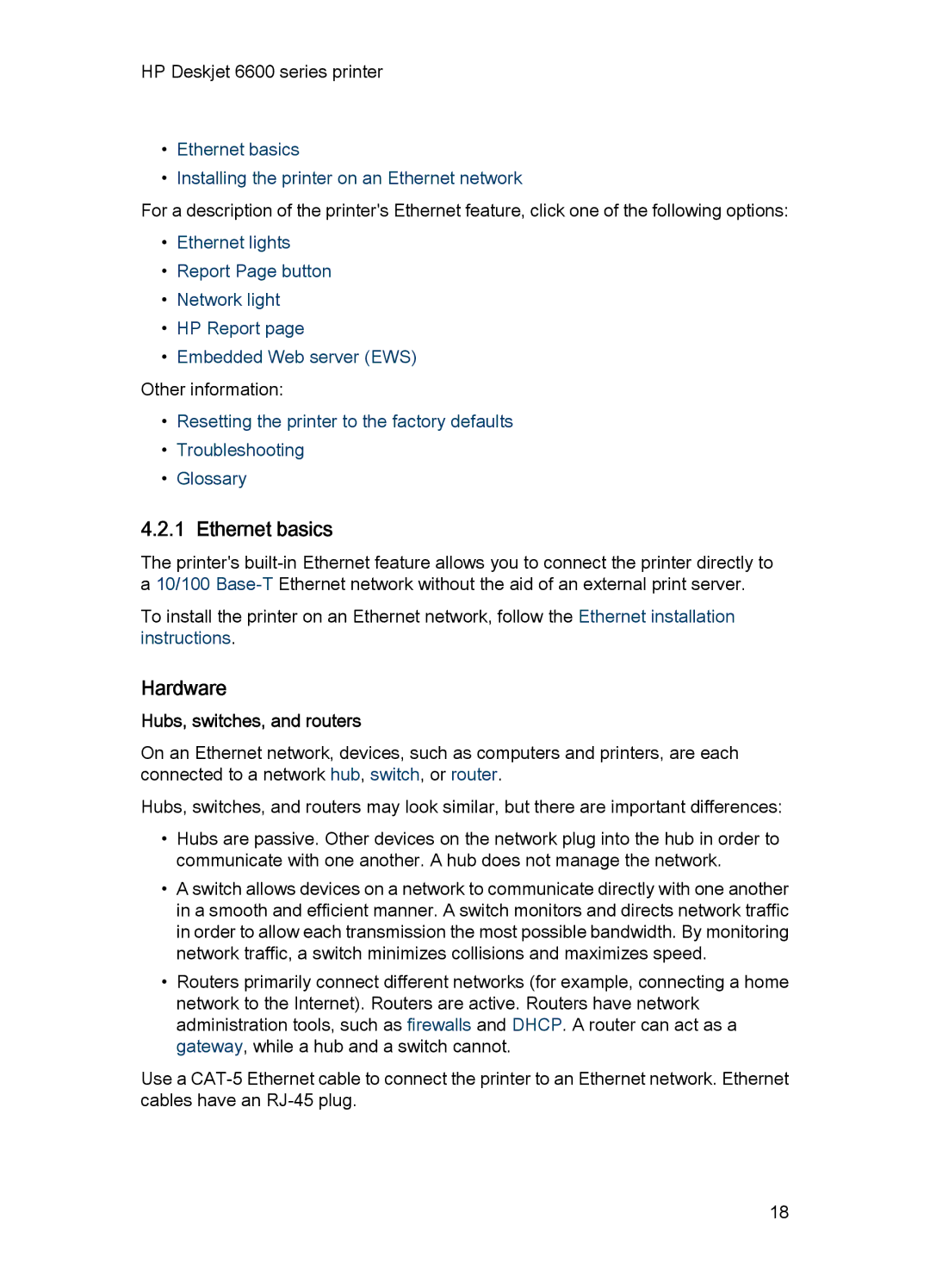HP Deskjet 6600 series printer
•Ethernet basics
•Installing the printer on an Ethernet network
For a description of the printer's Ethernet feature, click one of the following options:
•Ethernet lights
•Report Page button
•Network light
•HP Report page
•Embedded Web server (EWS)
Other information:
•Resetting the printer to the factory defaults
•Troubleshooting
•Glossary
4.2.1 Ethernet basics
The printer's
To install the printer on an Ethernet network, follow the Ethernet installation instructions.
Hardware
Hubs, switches, and routers
On an Ethernet network, devices, such as computers and printers, are each connected to a network hub, switch, or router.
Hubs, switches, and routers may look similar, but there are important differences:
•Hubs are passive. Other devices on the network plug into the hub in order to communicate with one another. A hub does not manage the network.
•A switch allows devices on a network to communicate directly with one another in a smooth and efficient manner. A switch monitors and directs network traffic in order to allow each transmission the most possible bandwidth. By monitoring network traffic, a switch minimizes collisions and maximizes speed.
•Routers primarily connect different networks (for example, connecting a home network to the Internet). Routers are active. Routers have network administration tools, such as firewalls and DHCP. A router can act as a gateway, while a hub and a switch cannot.
Use a
18
